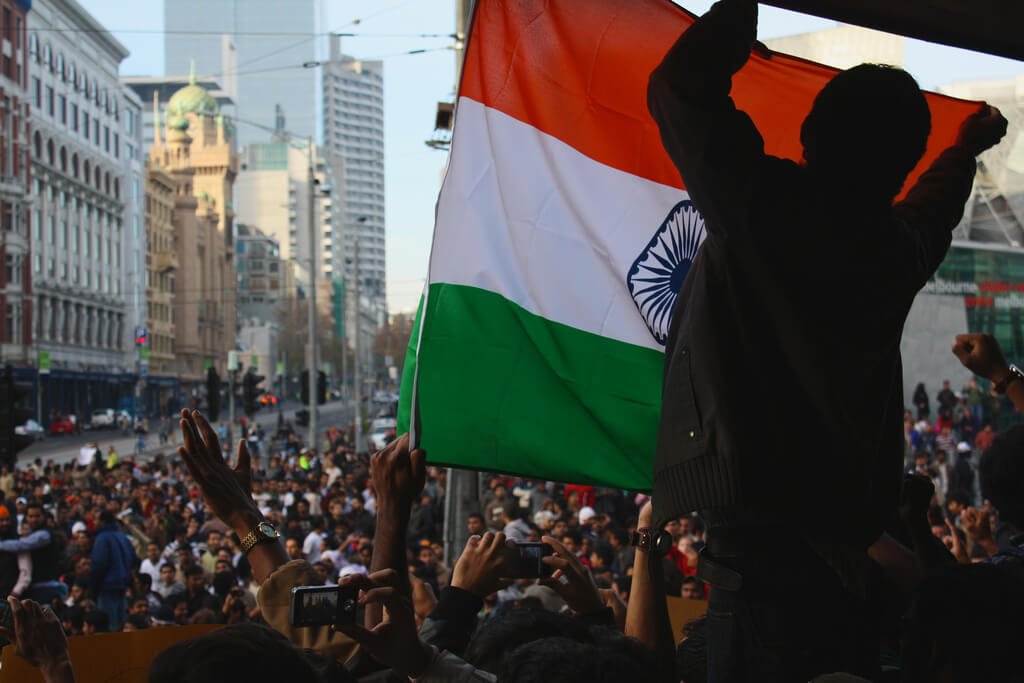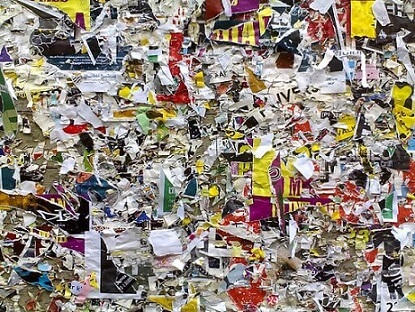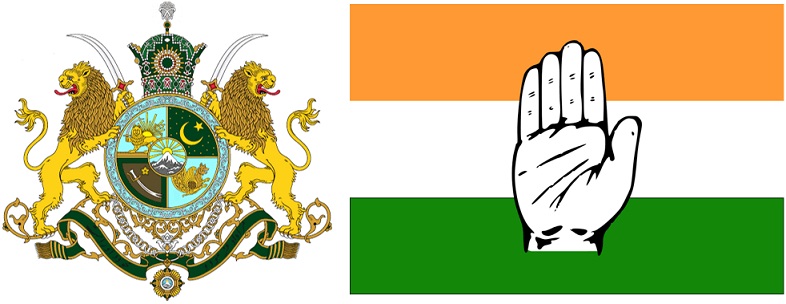There are broadly two definitions of Indian Nationalism as put forward by academicians. The first celebrates nationalism in India as being pluralistic under which a citizen can successfully and harmoniously cultivate multiple identities. These identities are rooted in loyalty to various social institutions such as religion, caste, linguistic group, etc. and have been encouraged by our Constitution. For example, it is perfectly acceptable to be an Urdu-speaking Sikh belonging to Ahluwalia caste from Punjab, be proud of all these identities, and yet identify foremost as Indian. Since the founding fathers (Gandhi, Nehru, Patel, Ambedkar, among others) played key roles in harmonizing these social identities and the creation of the Constitution, they are given major credit by the advocates of this definition for the cultivation of such nationalistic identity. This definition of Indian Nationalism is celebrated highly decoratively because it portrays India as being special since by far most of the nations in the world adhere to the European model of nationalism which is based on identification with a particular ethnicity, religion, language, etc. The diversity of India and the ability of its democracy to adjust itself and accommodate all the diverse constituents is something to be proud of (only the United States of America comes close). Consequently, according to this definition, since the establishment of the plural Indian state predated the European Union by more than four decades, Indian Nationalism presents an admirable vision of tolerance and assimilation.
The second definition of Indian Nationalism advocates that India is an artificial creation. According to this definition, no geographical, cultural, political, or social entity could be construed as India before the British took over the subcontinent. Thus, the existence of so many diverse sociological populations in India is itself a testimony to its very artificial existence. This definition credits the British for politically integrating the Indian subcontinent into a single entity and portrays the present nation as another British legacy. It further points out that before the partition of the Indian Subcontinent in 1947, religion was not an identity that could have been a binding factor (as Islam has become in Pakistan and Bangladesh while Hinduism is increasingly becoming in India) for the vast majority of its inhabitants along the lines of the European model of nationalism.
The above notions about nationalism in India emanate from the so-called “intellectual” viewpoints. Clearly, the two definitions mentioned above are fundamentally opposed to each other while either consists much to discuss, debate, and disagree. Irrespective of these scholarly perspectives, how does a common Indian, least concerned about academic hobgoblin, perceives nationalism in his/her daily life? Are Indian Armed Forces, the National Flag, the National Anthem, etc. the only sources of nationalistic feeling for him/her? Is s/he able to always put forward being Indian above all other social identities?
Unfortunately, the daily record of Indians in this context paints a depressing picture, to say the least. All too often, we see people cursing India for pollution, bureaucracy, and the state of its infrastructure while they themselves leave no stone unturned in making things worse. How can one love India and spit (often gutka and other crap) around on the roads while driving? The two activities seem irreconcilable to me. It is so often the case that Indians are proud of the natural beauty vastly abundant in their country and yet they pollute the country’s rivers, forests, mountains, etc. Why should the government or any organization spend its resources in educating people about sanity and keeping our ecosystems pristine? These habits should come naturally to the citizens of any nation out of love for their motherland. Since nationalism has everything to do with the love for one’s nation, what more could be of service to the nation than caring for its natural environment? The state of the natural environment is after all the foremost legacy that we will leave for the future generations of India. Similarly, it is absolutely discordant to protest for one’s demands or against the actions of the government while at the same time damaging public property which is a symbol of the nation’s progress. Many other types of unquantifiable economic damages are also inflicted by the vast majority of our citizens such as when various marriage-related and religious processions are responsible for causing inconvenience to others on public roads.
Most Indian citizens often repeatedly iterate that they are most proud of being Indian. But, often their other social identities take over. Just ask our Northeast brethren who face discrimination (and are often called by the derogative term, “Chinki”) in other parts of the nation where they migrate for educational and employment opportunities. Similarly, except as tourists, there is still a very harmful tendency between North and South Indians to look at each other with xenophobic tendencies. Many North Indians still phlegmatically refer to all Southerners as “Madarasis” as if a city defines the mindboggling diversity of the whole of South India. Even among North Indians as well, the mountainous people do not go very well with those from the plains if the latter want to pursue anything more than travel-related expeditions. More than seven decades after Ambedkar proposed and Gandhi agreed that the end of casteism can only happen with inter-caste marriages (one may also add that the end of regional jingoism can only come with inter-cultural marriages), the bonds related to caste are still very strong. What is the use of paying respect to the National Flag if one cannot accept that all others saluting the same flag are your fellow brethren, socially equal to you in all aspects, and engaged in the development of the same nation?
A major human characteristic that accompanies love is criticism. If somebody cares deeply about another being, s/he also reserves the right of criticizing the other being with equal conviction. Sadly, Indians are usually very circumspect about publicly criticizing what they perceive as wrong around them. They usually keep on blabbering against the government and their country while sitting at roadside tea stalls. However, they are generally careful of not accepting the many wrongs regarding their nation in front of strangers (especially foreigners). Nationalism with jingoism is a deadly combination and the only way to not mix the two is to evaluate one’s nation from a third-person perspective. But, self-criticism and self-deprecatory humor are traits that do not come easily to Indians. As Nehru once remarked from prison: “Nationalism is good in its place, but it is an unreliable friend and an unsafe historian. It blinds us to many happenings, and sometimes distorts the truth, especially when it concerns us or our country.”
In many ways, just like the diversity of the population it represents, Indian Nationalism is a curious mixture of diverse perspectives. It is an all-binding force that has kept the country together while at the same time it often acts as an artificial identity that gets subsumed under other social identities. Indian Nationalism has been evolving rapidly in the years since Independence. From time to time, it has become associated with Gandhian philosophy, Constitutionalism, faith in the Government, arriving on the world stage as a superpower, not being Pakistan, and a resurgence of old Hindu civilization, in no particular order. As former Prime Minister Rajiv Gandhi famously said, “India is an old country but a young nation, and like the young everywhere we are impatient.” And so, Indians have impatiently defined from time to time about what it means to be Indian. Indian Nationalism may have been a palimpsest of multiple ideologies but the progress that India has made within a democratic setup since Independence should be enough to turn anybody into an optimistic believer in its destiny.

 The Curse of the Bombardment of Information
The Curse of the Bombardment of Information